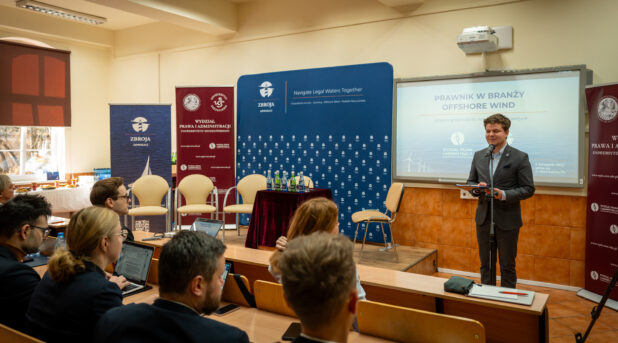BOOT Düsseldorf 2025 – trends, challenges and legal aspects for the yachting industry
Events /
6 February 2025
BOOT Düsseldorf 2025 was a unique opportunity to assess the current state of the European yachting market amid ongoing economic and geopolitical challenges. Despite supply chain limitations, sanctions, and a shifting global economic landscape, the yacht industry remains highly active. Even amid the prevailing crisis, the number of product launches and the growing interest across different yacht categories are optimistic signs for the market’s continued development.
As usual, the trade fair brought together an impressive 1,500 exhibitors from 67 countries, showcasing over 1,000 vessels across 16 exhibition halls.
But the event wasn’t just a stage for technological innovation. It also served as a hub for intensive business meetings, discussions about market challenges, and new contract negotiations.
New developments and trends in the yacht segment
One of the leading trends at this year’s edition was the growing importance of sustainable technologies in yacht manufacturing. Builders are increasingly investing in eco-friendly propulsion systems – from hybrids to fully electric engines.
There is also a growing demand for automation and artificial intelligence in navigation and vessel management systems.
Meanwhile, rising client expectations for personalization are pushing shipyards to offer more flexible solutions – from custom interior layouts and finishes to individually configured power and energy management systems.
Legal challenges in the yachting sector
The trade fair also provided an opportunity to discuss key legal issues that have become increasingly relevant for premium yacht manufacturers, dealers, and buyers.
Our law firm was represented by:
- Maciej Janicki (yacht taxation and international transactions),
- Małgorzata Wojtysiak (sale and purchase agreements, yacht refits, yacht-related disputes),
- Jakub Rodziewicz (yacht registration, operational and regulatory matters)
- Patryk Zbroja.
Here are some interesting highlights:
1. Place of delivery and VAT in international transactions
One of the most frequently raised issues was the ambiguity in determining the place of yacht delivery and its VAT implications.
Differences in VAT treatment across jurisdictions, along with the possibility of applying the Temporary Admission (TA) procedure for non-EU vessels, meant that transactions require thorough legal analysis. VAT risk management varies depending on whether the conversation involves a shipyards, dealer, broker, or end buyer.
2. Certification and regulatory compliance
The rapid development of propulsion technologies is placing greater emphasis on yacht certification requirements.
Safety standards and environmental regulations are becoming more stringent, and vessels must meet new regulatory demands – particularly when they are intended for operations across multiple jurisdictions.
3. Intellectual property protection
For shipyards and manufacturers, protecting their innovations through patents and design rights is becoming increasingly crucial.
Given the pace of technological progress and intensifying competition, the risk of IP infringement is growing.
4. Distribution and partnership agreements
We are seeing rising interest in the Polish market, due to its access to the EU and its strengthening economic position. Poland is increasingly viewed not only as a registration hub but also as a base for yacht manufacturing, distribution, and servicing.
More and more Polish shipyards and equipment manufacturers are eyeing exports – particularly to the U.S. market. This brings challenges related to distribution and dealer agreements, which must account for the specifics of foreign jurisdictions.
5. Operational and financial risk management
A key discussion topic was operational risk management, which – in such a dynamic environment – requires both flexibility and precision.
Yacht transactions often involve significant sums, making it essential to safeguard the parties’ interests with carefully drafted contractual clauses.
We held many discussions with shipyard, dealers, and our partners – including Pantaenius Poland and European Yachting Lawyers.
Macroeconomic challenges facing the yacht industry
An interesting topic at the fair was the inauguration of President Donald Trump. Initial optimism surrounded the possibility that the new administration would not raise taxes for American clients – a factor that could sustain or even boost sales of European yachts in the U.S.
However, concerns quickly emerged about potential new tariffs on EU goods, casting uncertainty over the future of transatlantic yacht trade.
Changing scale of the event
One noticeable trend at this year’s show was its smaller scale compared to previous years. Some key players, such as Bavaria, Hanse, and Windy, were absent, and certain halls featured empty spaces where exhibitors had opted out.
Some companies took advantage of the absence of competitors to expand their booths. Polish brands made a strong showing, including Galeon (with an impressive new stand), Northman (two separate spaces), Parker Poland, Cobra, Dracan, VTS, NFun, and Virtue.
Others used the event to make their debut – such as AirMech.
POLBOAT, led by President Michał Bąk, was once again a reliable presence, hosting the Polish stand in Hall 1 with support from a strong PAIH team.
BOOT Düsseldorf 2025 – summary
The yacht market – particularly in the sub12-meter segment – is currently far from ideal, and the effects of the downturn are being felt. However, from a long-term perspective, the real question is not “if”, but “when” the rebound and continued growth will come.
BOOT Düsseldorf 2025 once again demonstrated that it’s a place where the key trends and decisions shaping the future of the industry are made.
It was good to be part of it again.
Other events

Baltic Economy Congress 2025 – Security on the Baltic Sea, the development of Western Pomerania and offshore investments
Events / 26 November 2025

Report from the conference “Lawyer in the offshore wind sector – maritime economy law in practice” through the eyes of the lawyers from Zbroja Adwokaci
Events / 5 November 2025

Law and offshore in practice – takeaways from the 14th International Offshore Wind Logistics & Supplies Conference
Events / 30 October 2025

Polish-Danish offshore wind supply chain grows in Szczecin
Events / 24 September 2025
